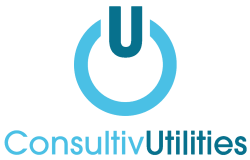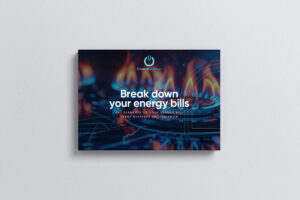How much of your energy bill are non-commodity costs?
As energy procurement is a necessity for all businesses, it’s important to understand the costs that are included within your energy bills. It may come as a surprise to learn that on average approximately 51% of your energy bill is for the actual energy you have consumed over that period. The remaining costs (up to approximately 49%) are non-commodity costs (NCCs), also sometimes referred to as non-energy costs or third-party charges.
In brief, the non-commodity costs consist of both levies and government schemes and various system charges.
What are some of the non-commodity energy costs called?
We’ve listed some of the more commonly known government levies and system charges below.
This list is not exhaustive and what you see in your energy bill will vary depending on your supplier.
Government levies:
- Contracts for Difference (CfD)
- Capacity Mechanism (CM)
- The Renewable Obligation (RO)
- The Feed-in Tarrif (FiT)
- Green Gas Levy (GGL)
- Regulated Asset Base (RAB)
System charges:
- Transmission Network Use of System (TNUoS)
- Distribution Use of System (DUoS)
- Balancing Services Use of System (BSUoS)
Break down your energy bills
We’ve created a comprehensive guide on the key elements of your energy bill, where you can:
- Delve deeper into what makes up your energy bill.
- See what further potential NCCs may be coming in the near future.
- View our team of experts forecast of a future energy bill cost break down.
Click here to download our free guide.
Are non-commodity costs going to increase?
Yes. NCCs associated with energy costs have gradually risen over recent years, with projections indicating that this trend will continue.
The estimated rise in NCC charges is, in the main, due to the UK’s requirement to invest and improve the energy infrastructure within. The charges are fundamental for securing the funds to accelerate the adoption and production of renewable energy. The UK’s contributions to NCCs ensure that we are complying to regulations and ultimately supporting net zero 2050 targets.
With NCCs expected to continue to rise over the next five years, it’s likely that even if the wholesale price were to drop, energy bills will still increase.
What do non-commodity energy costs go towards?
NCCs help to support a number of schemes and subsidies:
Nuclear Regulated Asset Base (RAB)
A model to aid the funding of nuclear energy projects, including during the infrastructure/building stage.
Hydrogen Levy
Expected to be introduced in 2025, the purpose of the levy is to provide long-term funding for the hydrogen business model, which will enable hydrogen producers to overcome the operating cost gap between low carbon hydrogen and fossil fuels.
Energy Intensive Industry (EII) Levy
Energy tax relief on funding low carbon/renewable energy support schemes for eligible energy intensive businesses.
Carbon Capture and Storage Levy
The capturing, transporting and storing of carbon dioxide (CO2) before it is released into the atmosphere.
Conclusion
It’s essential to understand your non-commodity costs and learn about where there may be potential savings, and potential increases in the future. And, with the forecast for NCCs set to rise, it’s important to consider how you can potentially counteract rising costs.
You can implement suitable cost management strategies to help you effectively regulate your energy costs, tailored to your energy usage profile.
Flexible Energy Contracts
We have extensive experience helping companies to implement and effectively manage flexible energy contracts for their electricity and gas requirements.
Energy Audit
We are also able to provide you with an energy audit, looking at your energy usage in detail. We can undertake a comprehensive review of operations to help identify potential cost and carbon savings.
If you would like to know more, simply get in touch for a free consultation with one of our energy specialists.
Energy Bureau
Our bureau services team can undertake a comprehensive review of your energy bills. The expert team can check your non-commodity charges, identify any potential savings and help you to budget for your future energy costs.
We hope that you found this blog both useful and informative. Share your thoughts on NCCs or any energy-related matters with us via email at [email protected].

